This interview first appeared here in 2017.
Here’s how Grand Funk Railroad began: Guitarist Mark Farner and drummer Don Brewer played in Terry Knight’s band, Terry Knight and the Pack. They had some regional success in Michigan, but nothing huge. Knight would later become their manipulative producer-manager-Svengali. It’s not something Farner looks back upon with fondness.
“Back then,” he tells us, “Terry Knight told us he was gonna keep us from the press to create a mystique around the band. It sounded OK with us. We didn’t know anything; we were 20 years old when we signed with him. My mother had to sign to make it legal. But he did it and it was a way for him to tout his managerial expertise, how good he was and how good looking he was.”
So, who were they if they were mysterious creatures of Knight?
“In the early days, we were just a garage band, basically,” says Farner, born on September 29, 1948. “We were actually a five-piece, I was the singer, there were four other musicians, but I wasn’t playing anything in that band, the Fabulous Pack. I just stood up front and sang. We got waylaid; we were out in Cape Cod in a summer beach house, a little cabin, and it was winter. We had the worst snowstorm in the history of the world and we got stranded there for weeks in February of 1969. We were melting down snow to have water to drink and mix with our oatmeal that didn’t have any butter or sugar and that’s all we were living on.
“These two other players were married. When we got home [to Flint, Mich.], the two guys that were married, their wives were gonna divorce them and the band broke up. We got all these gigs coming up and now we don’t have a band. I said, ‘We ought just do a three-piece’ and Don said, ‘Do you think we can?’ And I said, ‘If we get the right bass player we can.’ We started looking and went out to Delta Promotions in Bay City where this company that sent us out to the Boston area to do these gigs [was located] and we were going to give them a piece of our minds. But while we were sitting in the outer office waiting to get in, there was somebody in their rehearsal hall playing. You couldn‘t hear it very good, but you could feel the bass coming through the wall and I said, ‘Ooh, listen to that bass player, that guy’s getting down under that. We gotta see who that is.’ So, they took a break and it was ? and the Mysterians and Mel Schacher was playing bass.
“Mel and I had grown up together, road dirt bikes, hung out together and I said, ‘Mel, are you playing with him now?’ and he said, ‘Yeah, but I’m not liking it.’ I said, ‘Brewer and I were talking about putting together a three-piece. Would you be interested in being the bass player?’ He said, ‘Hell, yeah, when are you gonna do it?’ and I said, ‘Next week we’re gonna start.’ We joined the Flint Federation of Musicians on Avril Street. A lot of the first album was written, right there in that Union Hall.”
Watch a video of early GFR playing “I’m Your Captain/Closer to Home”
The message in the music? “I tried to speak to the people through songs,” says Farner. “Stop the war, to provoke people to think. And I think because of that, the obvious motivation for anything geared toward the people is love. They love me because they hang onto the hope that I’ve given them.”
Todd Rundgren entered the GFR world to produce 1973’s We’re an American Band, but Farner claims there was no grand design, either to snag him or shift toward a more pop direction. “We were discussing who would produce, who we wanted, who did we think would do a good job for us,” Farner says, “and we put a bunch of names in a hat. I’m not kidding, I drew it out and it was Todd Rundgren. He really made the album sound more like what we were looking for—what the keyboards should sound like, what the guitars should sound like.
“Terry Knight never did that for us. He never even asked, ‘Do you like that?’ or, ‘Am I going in the right direction?’ He did it and that’s the way it was. Todd, he would fit right in to whatever we were doing.”
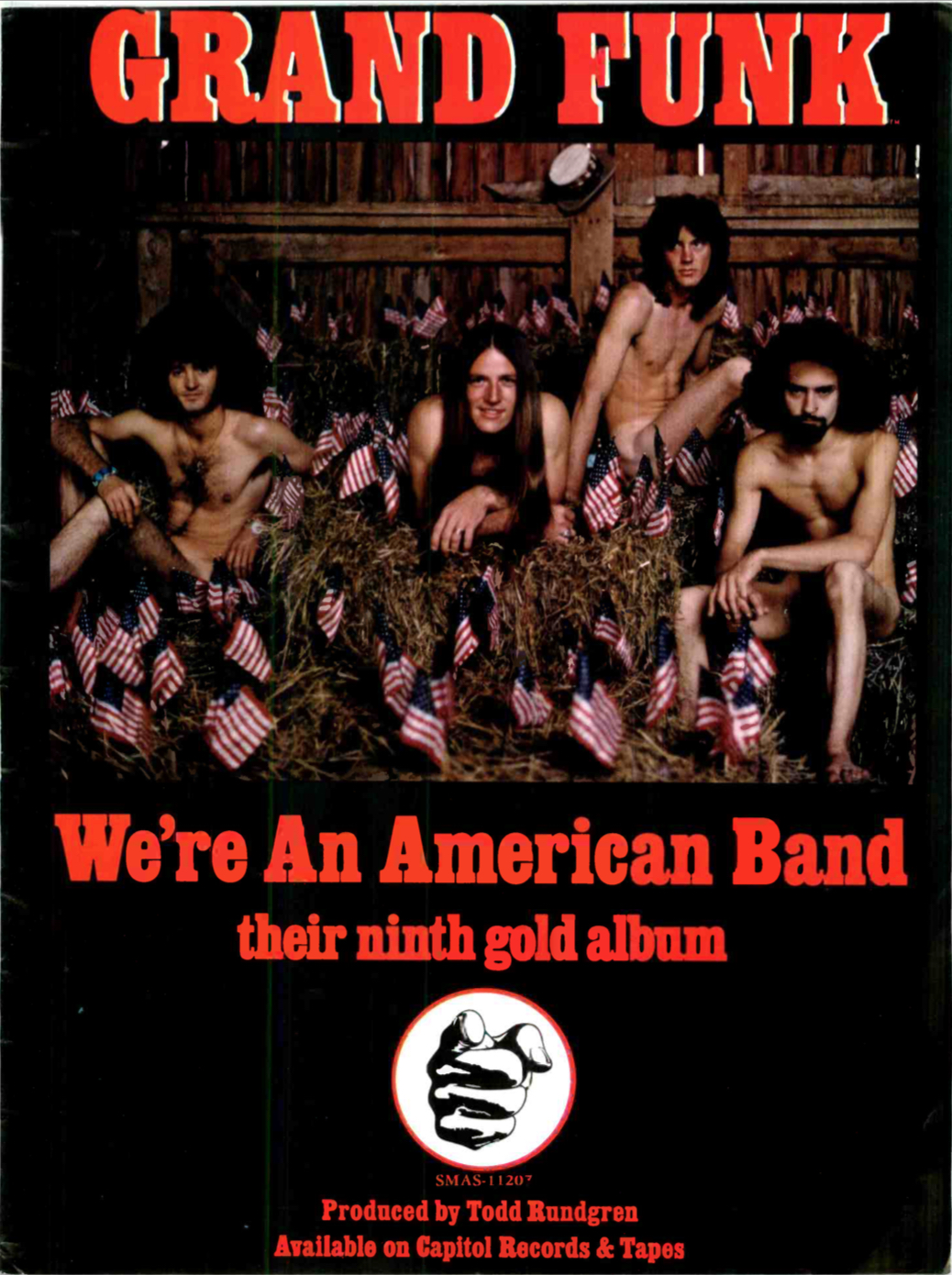
A 1973 music industry ad from Capitol Records
With the big hit came the big party and with the big party came the kind of PG-rated hijinks the song suggested. “When we had the party for [the title track of] ‘We’re an American Band,’ when it went to number one, we had a big party with a cake in a Beverly Hills hotel in the ballroom and it was a layer cake, like somebody’s wedding cake but huge, with Uncle Sam on the top. It was kinda cool and they were gonna have a photo op. We all get our hand on this knife—Don, Mel and Mark posing—and got the knife halfway through the cake, pushing down on it and somebody says, ‘Food fight!’
“Brewer grabs a handful of that cake and whips it out into a hundred people and they [hotel staff] did not like that. There was food was flying! After most of the cake was torn down, there was that bottom layer that had frosting on it and Brewer got on underneath that thing and threw it up to the ceiling and it stuck up there and was falling off in pieces from the chandelier. That cost us $50.000, the fine and the cleanup and they barred us from ever coming back to the Beverly Hills Hilton.
“We’re an American Band” was a mega-hit—AM, FM, everywhere. It was a party-hearty song; everyone wanted to join in. They imagined that they, too, were the boys in the band. Brewer has the songwriting credits.
Farner’s take: “Don Brewer kind of did [write it] as far as the lyrics. I wrote that drum lick for the intro. I told Brewer ‘We need a cowbell in this,’ and he didn’t even own a cowbell. He said, ‘I’ll pick one up,’ and I said, ‘No, man, pick up six and we’ll use the best one out of the six,’ and that’s what he did. And that is my drum lick on the intro. I couldn’t play it, but I could tell him how to play it. I wrote the music, all the changes, the harmonies, So, Brewer comes to me when it’s all said and done and said, ‘You know, Farner, I never had 100 percent writing credits on any song. Could I take it on this?’ I thought for a second and said, ‘Ah, go ahead,’ because I’m a nice guy. Eh … sometimes. My heart was in the right place, but I got taken advantage of because his heart wasn’t.”
What he learned: “Deception works.”
Watch Grand Funk perform “We’re An American Band” in 1974
Bigger example: “I had no idea when Don Brewer came to my hotel room after a gig one night in 1998, I think it was, and he said, ‘Mark, we all need to sign our individual ownership of the trademark into the corporation, where it’ll have this protective umbrella’ or something. Now, I didn’t finish high school and he had gone to law school and I thought he was looking out for best interests of the band. I thought he was my friend and I went, ‘Uh, OK I’ll do that.’ He says, ‘I’ll go to my room and get the papers.’
“While he was gone, I thought ‘Why the hell didn’t he just bring the papers with him?’ And then it didn’t dawn on me until after I signed the papers and there was a conference call with Don and Mel and they were telling me I was no longer an officer in the corporation, that they were throwing me out. It ensued from there, the hatefulness and jealousy.
“I am who I am. I wrote 90-some percent of that music and I’m very proud of what I wrote—not any songs Brewer wrote—and Shea Stadium sold out on Mark Farner music. Don Brewer hadn’t put his pen to any song at that point in his career.”
So, there was bitterness. There were also reunions. In 1983 Farner’s current bassist, Dennis Bellinger, stepped in for Schacher because, Farner says, “Mel told us he could no longer fly—he was afraid of flying.” In ’96, he says, the original trio got back together. “We went out and did the [live] Bosnia album and did New York, L.A. and Detroit with a full orchestra, with Paul Shaffer [conducting]. He did a bang-up job, a wonderful man. He’d never been a conductor of an orchestra before and it was awesome. [Editor’s note: Bosnia was a live album from the Detroit show, a benefit for Bosnia and Herzegovina.] You talk about highs. I’m up there singing and the violins start coming in on ‘Closer to Home’ and I’m having a hard time just trying to sing without this softball that’s in my neck getting in the way.”
The bad blood was put aside before. Might that happen again?
“I don’t foresee it, because I go by feeling,” Farner says. “I asked Brewer because a fan said they’d read an article that said when asked if Grand Funk would get back together again he said, ‘Never say never.’ So, I said to him, in a conference call a few months ago, ‘Hey, Brewer. I heard from a fan in an interview you were asked if the band might reunite and you said never say never. Was that true or was that just bullshit?’ He hemmed and hawed. No words were coming and then he finally said, ‘Never say never.’”
[Many of the band’s recordings are available here.]
Related: Part one of our interview with Farner, with more about the band’s legacy
- Interview: Ringo Starr’s Drum Beat Can’t Be Beat - 07/06/2025
- 10 Songs That Defined New Wave Music - 07/01/2025
- Mark Farner Interview: Grand Funk Railroad’s Legacy - 06/05/2025

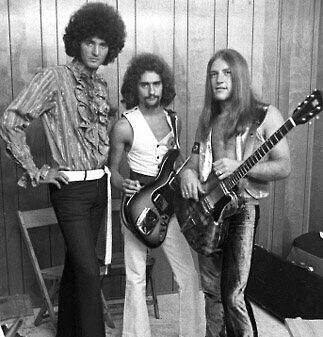
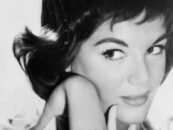
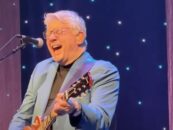

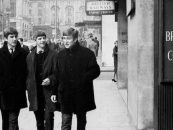

13 Comments so far
Jump into a conversationAs always, there’s two sides to every story. The reason Brewer did what he did was because Farner would not commit to an all out reunion of the band. He wanted to do his own thing and when he wanted, he would then join back up with Brewer and Schacher, the other two wanted to make it permanent, but Farner was doing a come to Jesus thing and did not want to make Grand Funk a priority.
Bullshit!
I’m on the USS Coral Sea going under the Golden Fate Bridge in July 1972 coming home from Nam and you can hear someone coming on the flight deck playing CLOSER to my HOME and my eyes well up and my face has a huge smile on it . Great moment for me at age 22 !
I bet it was quite awesome having this incredible band’s Closer to My Home being piped throughout the ship, fulfilling that moment for you. Thank you for your service!
Right on! Farner is the manipulator, the massive ego who kept quitting the band because he thought his solo career was more important.
Answer me this, the Farner faithful, why has he never put out a strong Album on his own? In 43 years outside of GFR he has done pretty much next to nothing as far as accomplishment! I wish he would shut his whiney ass mouth!!
All Don and Mel wanted to do was work, and Farner said no for two years!! So they finally went on without him.
I disagree with Bluzrider. Farmer has always been spiritual. Notice how many times he referred to the fans as brothers and sisters. He’s a humble man, Brewer messed up. GFR is not GFR without Mark
So, they heard Mel Schacher playing with ? and the Mysterians and thought “there’s a good bass player”? The one who played an E major bass riff under the E minor bridge of “96 Tears”? Sure.
My Mom told me a good Mark Farner story awhile back: They were closing a show in LA with Ten Years After, and I think Black Oak, but I could be wrong on that, anyway, show ends crowd is calling for an encore, Farner walks out on stage solo and says into the mic ‘Im not sweating my balls off for you people’, and walks back off stage…
Whatta guy!
Mel wasn’t with ? When they did 96 tears ,he was with them later
How many long-running bands HAVEN’T had issues? Kiss, Fleetwood Mac, Creedence . . . Bruce Kulick played for Kiss AND Funk.
Doesn’t change the fact that GFR was great as a blues-boogie band, and great as a rock & roll singles band.
Interesting choice of producers after they dumped Knight (RIP). Rundgren, Ienner, ZAPPA.
Before he managed Grand Funk, Terry had one of the many “tribute” songs for the deceased Paul McCartney. Appropriately titled “Saint Paul”.
I had no idea Todd was involved with Grand Funk Railroad. He is a wizard a true star….
I saw the band at one of their first performances at the Michigan Rock Fest. In May of 1969 on the Michigan State Fairgrounds
How many bands have learned the hard way that music is a business.